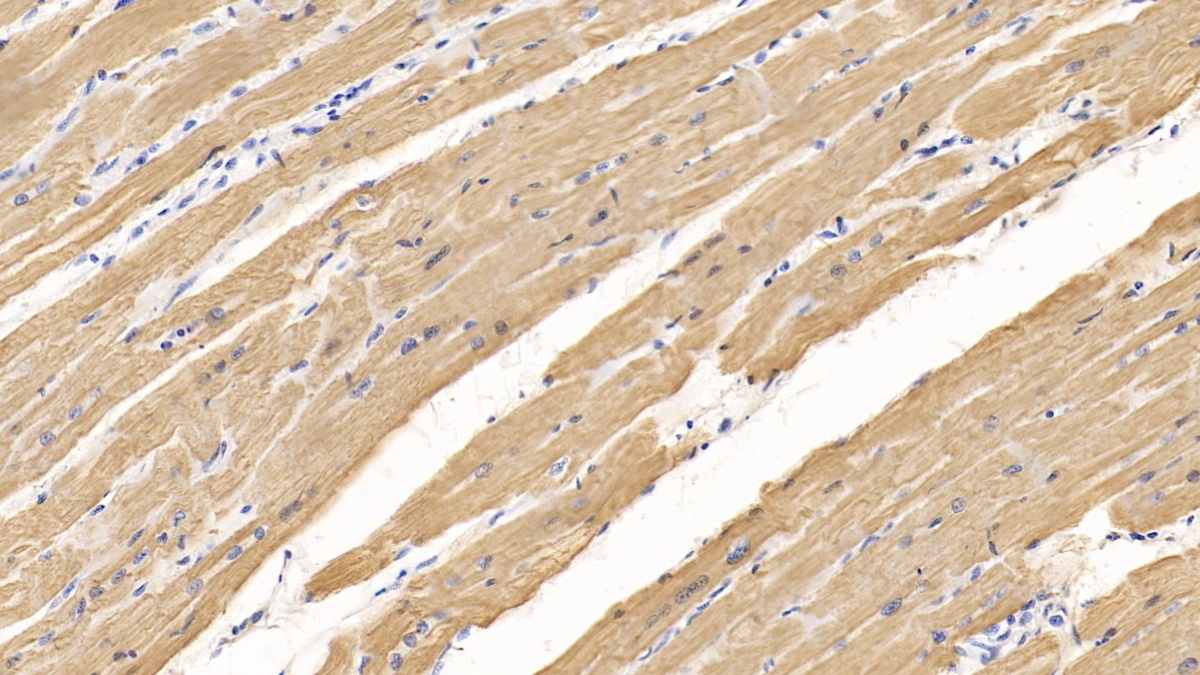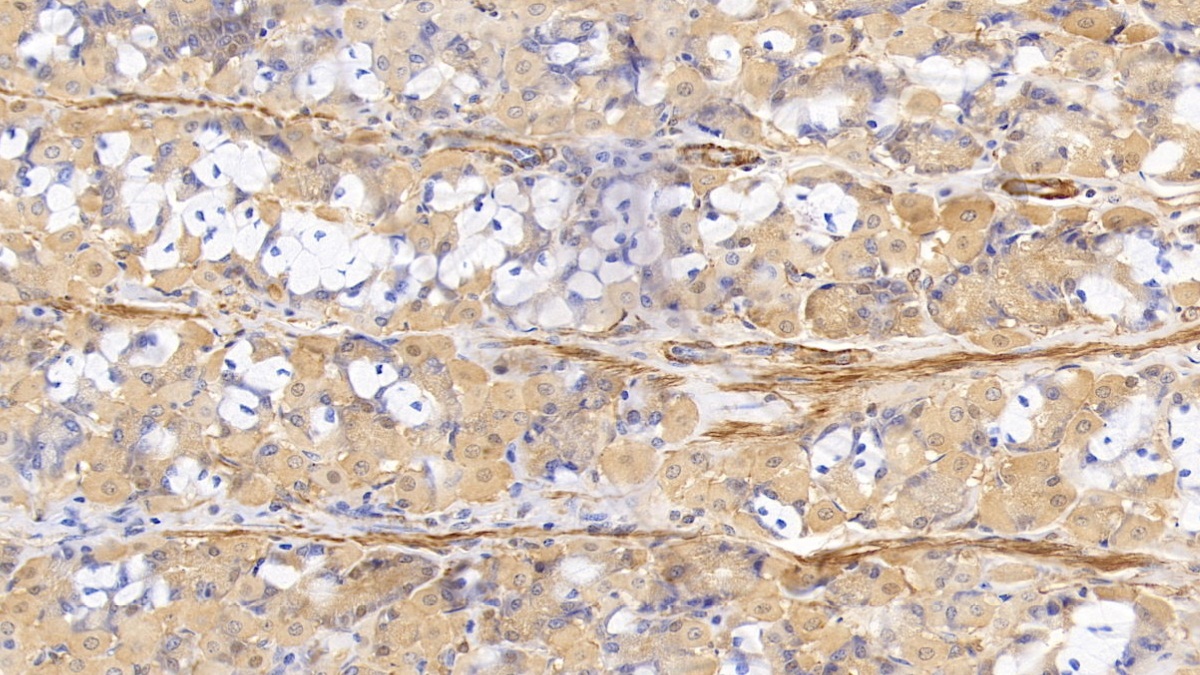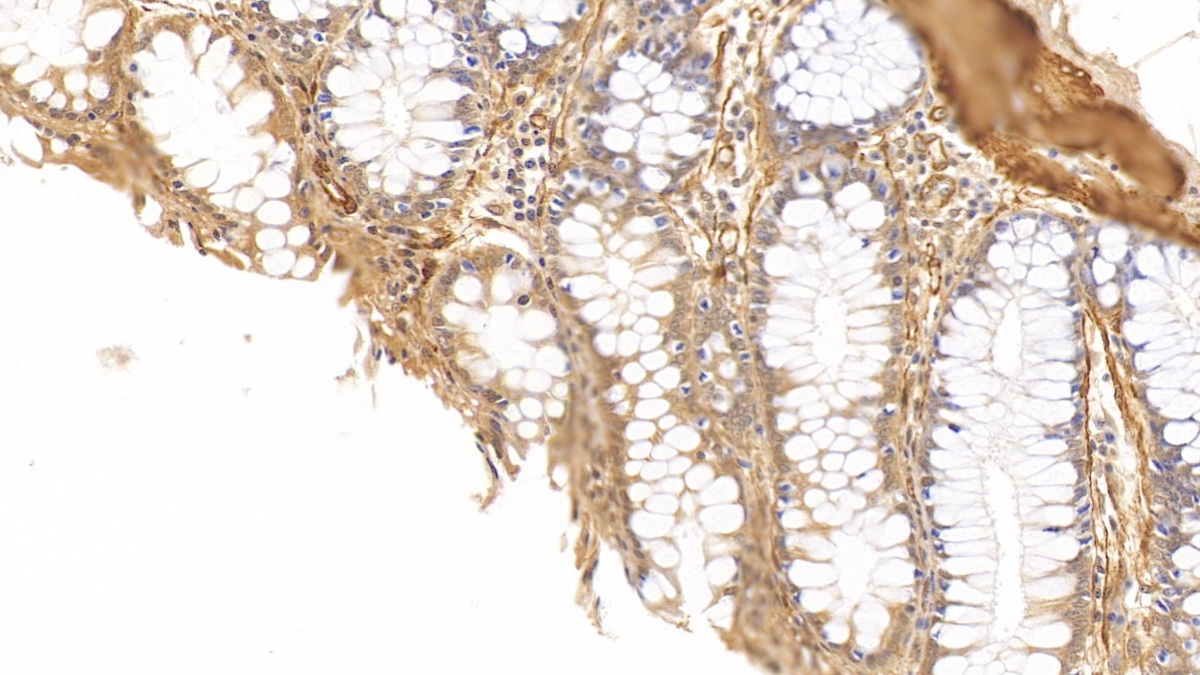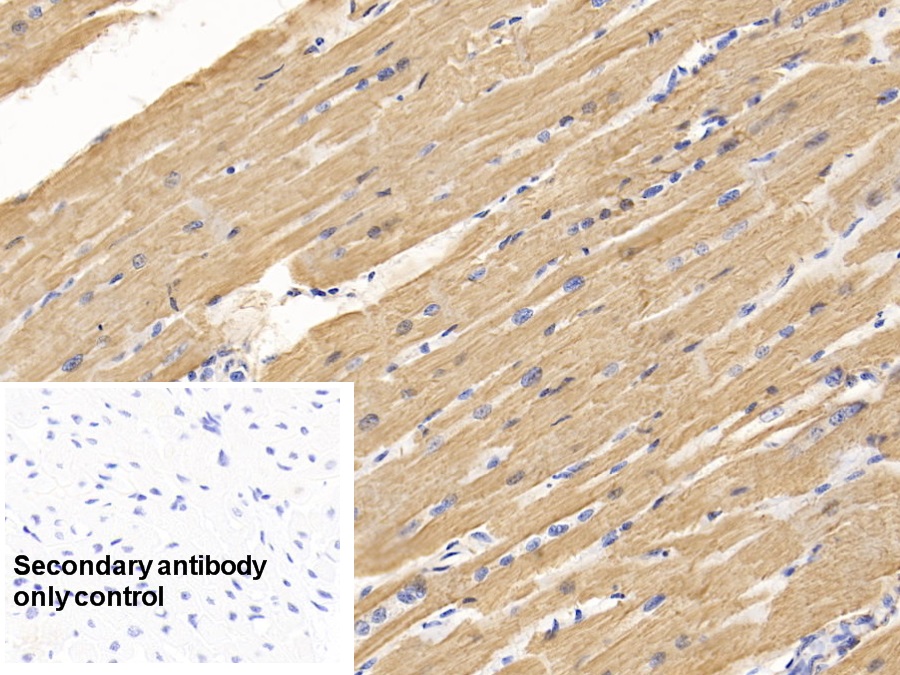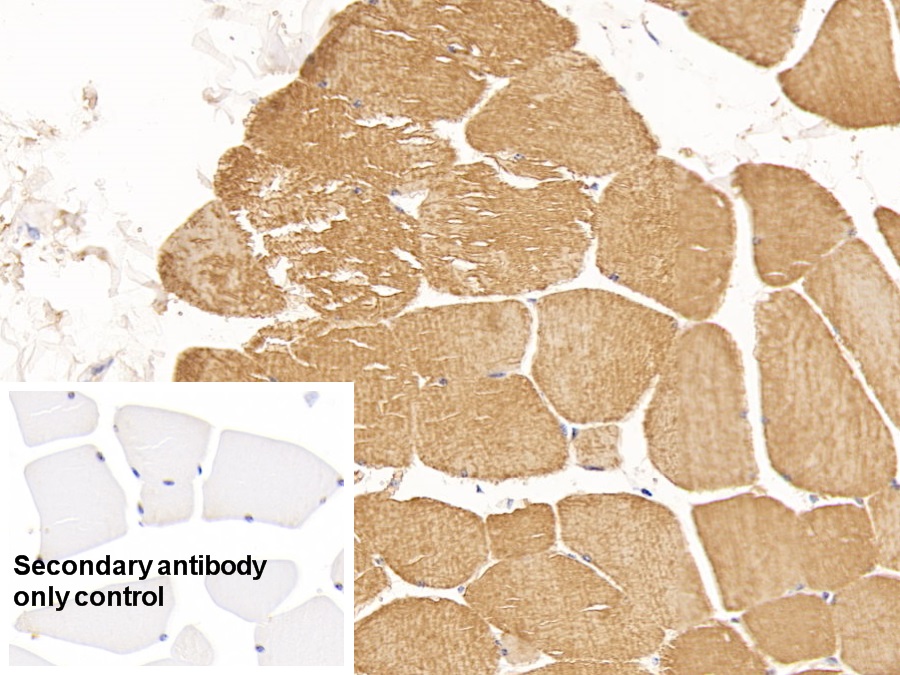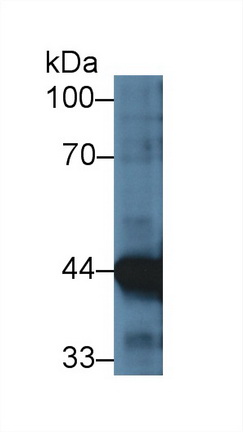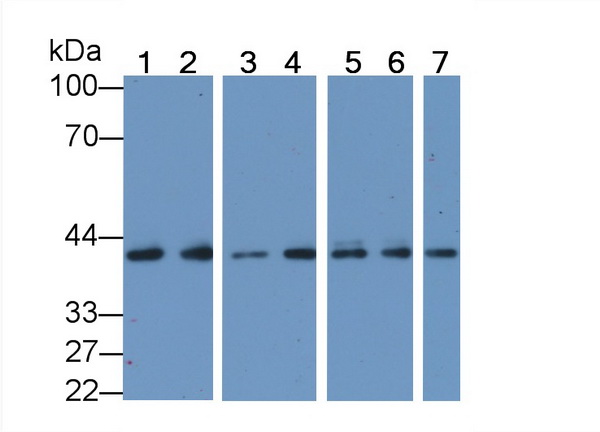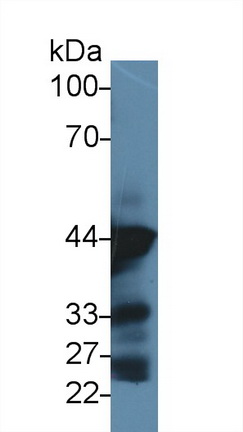Anti-Actin Alpha 1, Cardiac Muscle (ACTC1) Monoclonal Antibody
ACTC; CMD1R; CMD1-R; ACT-a1
- Product No.CAB341Hu22
- Organism SpeciesHomo sapiens (Human) Same name, Different species.
- PurificationProtein A + Protein G affinity chromatography
- LabelNone
- Buffer FormulationPBS, pH7.4, containing 0.02% NaN3, 50% glycerol.
- TraitsLiquid
- Concentration1mg/mL
- Organism Species MoreMus musculus (Mouse), Rattus norvegicus (Rat), Cavia (Guinea pig ), Oryctolagus cuniculus (Rabbit), Rhesus monkey (Simian), Canis familiaris; Canine (Dog), Sus scrofa; Porcine (Pig), Bos taurus; Bovine (Cattle), Chicken (Gallus), Danio rerio (Zebrafish)
- ApplicationsWB; IHC
- DownloadInstruction Manual
- UOM 20µl100µl 200µl 1ml 10ml
- FOB
US$ 119
US$ 279
US$ 398
US$ 995
US$ 3980
For more details, please contact local distributors!
SPECIFITY
The antibody is a mouse monoclonal antibody raised against ACTC1. It has been selected for its ability to recognize ACTC1 in immunohistochemical staining and western blotting.
USAGE
Western blotting: 0.01-5µg/mL
Optimal working dilutions must be determined by end user.
STORAGE
Store at 4°C for frequent use. Stored at -20°C in a manual defrost freezer for two year without detectable loss of activity. Avoid repeated freeze-thaw cycles.
STABILITY
The thermal stability is described by the loss rate. The loss rate was determined by accelerated thermal degradation test, that is, incubate the protein at 37°C for 48h, and no obvious degradation and precipitation were observed. The loss rate is less than 5% within the expiration date under appropriate storage condition.
GIVEAWAYS
INCREMENT SERVICES
-
 Antibody Labeling Customized Service
Antibody Labeling Customized Service
-
 Protein A/G Purification Column
Protein A/G Purification Column
-
 Staining Solution for Cells and Tissue
Staining Solution for Cells and Tissue
-
 Positive Control for Antibody
Positive Control for Antibody
-
 Tissue/Sections Customized Service
Tissue/Sections Customized Service
-
 Phosphorylated Antibody Customized Service
Phosphorylated Antibody Customized Service
-
 Western Blot (WB) Experiment Service
Western Blot (WB) Experiment Service
-
 Immunohistochemistry (IHC) Experiment Service
Immunohistochemistry (IHC) Experiment Service
-
 Immunocytochemistry (ICC) Experiment Service
Immunocytochemistry (ICC) Experiment Service
-
 Flow Cytometry (FCM) Experiment Service
Flow Cytometry (FCM) Experiment Service
-
 Immunoprecipitation (IP) Experiment Service
Immunoprecipitation (IP) Experiment Service
-
 Immunofluorescence (IF) Experiment Service
Immunofluorescence (IF) Experiment Service
-
 Buffer
Buffer
-
 DAB Chromogen Kit
DAB Chromogen Kit
-
 SABC Kit
SABC Kit
-
 Long-arm Biotin Labeling Kit
Long-arm Biotin Labeling Kit
-
 Real Time PCR Experimental Service
Real Time PCR Experimental Service
| Magazine | Citations |
| Research Quarterly for Exercise and Sport | Plasma α-Actin as an Early Marker of Muscle Damage After Repeated Bouts of Eccentric Cycling Pubmed:35522171 |


